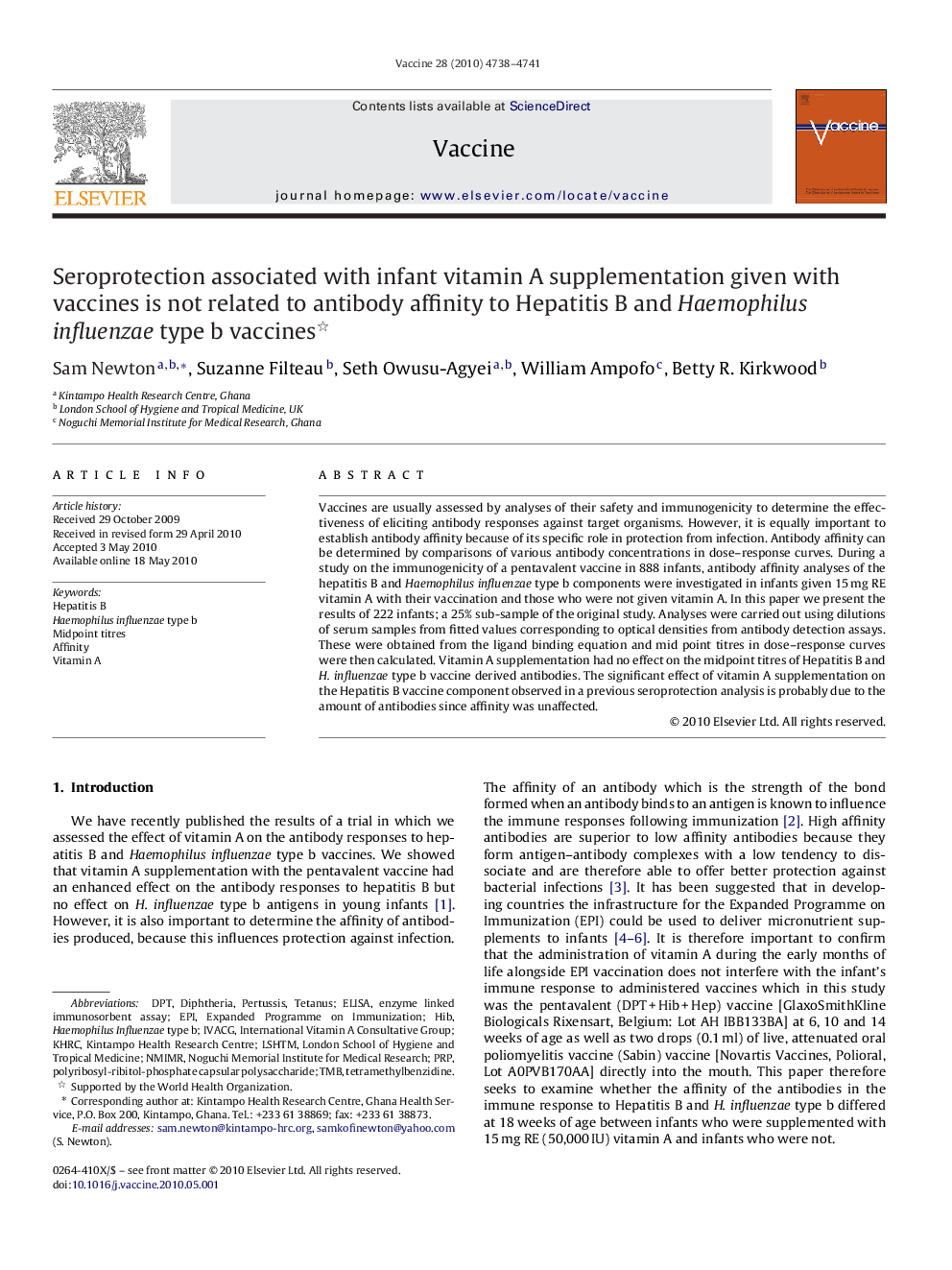| Article ID | Journal | Published Year | Pages | File Type |
|---|---|---|---|---|
| 2404500 | Vaccine | 2010 | 4 Pages |
Abstract
Vaccines are usually assessed by analyses of their safety and immunogenicity to determine the effectiveness of eliciting antibody responses against target organisms. However, it is equally important to establish antibody affinity because of its specific role in protection from infection. Antibody affinity can be determined by comparisons of various antibody concentrations in dose-response curves. During a study on the immunogenicity of a pentavalent vaccine in 888 infants, antibody affinity analyses of the hepatitis B and Haemophilus influenzae type b components were investigated in infants given 15Â mg RE vitamin A with their vaccination and those who were not given vitamin A. In this paper we present the results of 222 infants; a 25% sub-sample of the original study. Analyses were carried out using dilutions of serum samples from fitted values corresponding to optical densities from antibody detection assays. These were obtained from the ligand binding equation and mid point titres in dose-response curves were then calculated. Vitamin A supplementation had no effect on the midpoint titres of Hepatitis B and H. influenzae type b vaccine derived antibodies. The significant effect of vitamin A supplementation on the Hepatitis B vaccine component observed in a previous seroprotection analysis is probably due to the amount of antibodies since affinity was unaffected.
Keywords
Related Topics
Life Sciences
Immunology and Microbiology
Immunology
Authors
Sam Newton, Suzanne Filteau, Seth Owusu-Agyei, William Ampofo, Betty R. Kirkwood,
